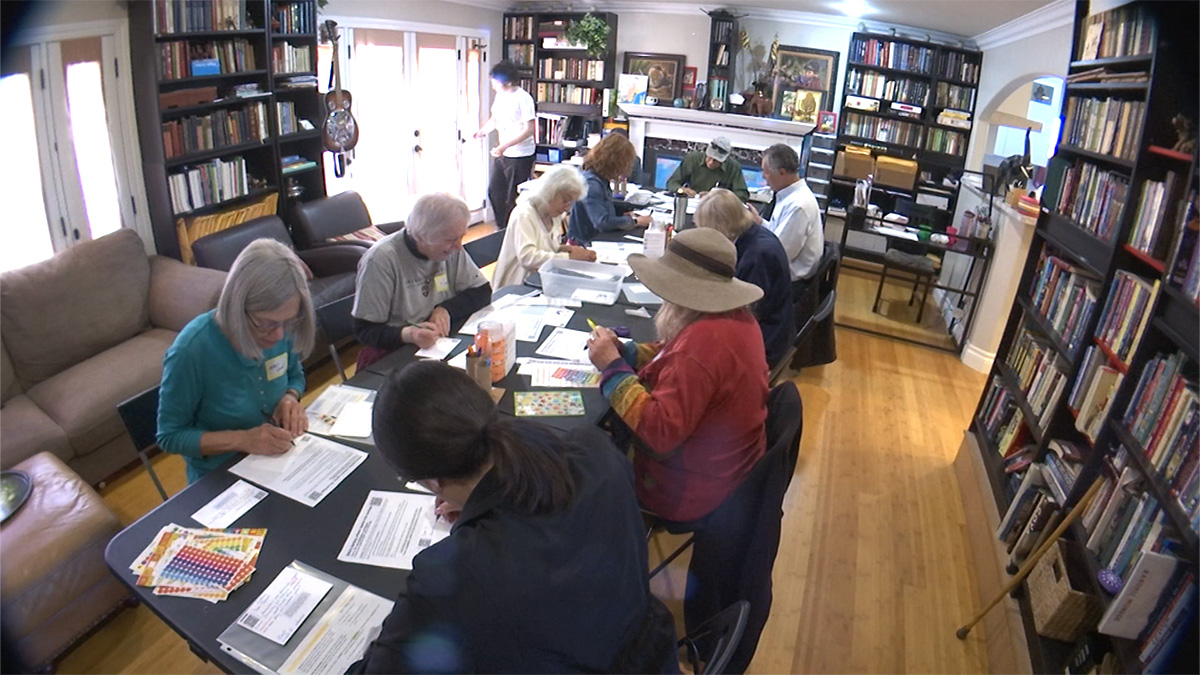Today, 13 excruciatingly long years since a Santa Clara County jury sentenced Richard Allen Davis to death for kidnapping and killing Polly Klaas, the California Supreme Court issued its very first ruling on his death penalty appeal.
The court upheld both the conviction and death penalty. Davis had argued that his jailhouse confession was illegal because it was given without an attorney present.
In a ruling issued in San Francisco, the court said, "We affirm the judgment in its entirety."
But nearly 16 years after Davis kidnapped and killed Polly, the ruling brings him just one tiny step closer to San Quentin's Death chamber.
The ruling revealed graphic details of the case.
The kidnapping case mesmerized the Bay Area in the early 1990s. The little girl's picture was on the front page of every newspaper and the first story of every newscast for weeks.
Most who lived through it will remember where they were when the news broke that her body had been found and a suspect arrested. Hearts dropped across Northern California.
Even though most Californians are aware the appeals process moves at a snail's pace, the fact that it took over a decade for the first and automatic first step comes as a shock to many.
There are 680 California inmates sentenced to death. Also, a federal judge has halted executions in California until prison officials update their lethal injection procedures.
Davis, 54, a former sheet metal worker with a long criminal record, was convicted in Santa Clara County Superior Court in 1996 of kidnapping the child from a slumber party at her mother's home in Petaluma on Oct. 1, 1993. Her cause of death was strangulation.
Polly's body lay under a piece of plywood in an area covered with thorny blackberry briar along Highway 101 in the Cloverdale area for two months.
After his arrest for a parole violation, Davis gave investigators information about the location of the badly decomposed body. Her temporary grave had been driven by thousands of vehicles in the long weeks she remained missing.
The trial was moved from Sonoma County to Santa Clara County because of extensive publicity about the case.
Davis is a very easy guy to hate.
When he was convicted, he turned to the camera in the courtroom and put up his middle finger on live television.
During his sentencing he read a statement that ended with a offensive claim concerning the child's last words that infuriated Polly's father Mark Klaas so much he had to be restrained.
Even with today's court decision, Davis can continue appeals through Haber's corpus petitions in the state and federal court systems.
In fact, Phillip Cherney, Davis' attorney in the appeal, said a petition is already pending in the California Supreme Court and that Davis will appeal in the federal court system if the state petition is unsuccessful.
The court's seven justices heard an hour's with of arguments earlier this year and had three months to make a ruling.
All death penalty cases in California are automatically appealed directly to the state Supreme Court. The fact that the word "directly" means 13 years is shocking to say the least.
In today's 112-page ruling, the court rejected a series of appeal arguments by Davis, including claims that his trial should have been moved out of the Bay Area and that confessions he gave investigators after being arrested should not have been allowed as evidence.
Justice Joyce Kennard wrote for the court that officers' initial questioning of Davis without a lawyer present was justified by a concept known as the rescue doctrine, because the officers hoped Klaas might still be alive and could be rescued.
Local
Kennard wrote, "So long as she remained missing, her safety was of paramount importance."
Davis later waived his right to have a lawyer and told investigators he strangled Klaas on the night he kidnapped her.
The court upheld Davis' convictions on a total of 10 counts, including first-degree murder, kidnapping, an attempted lewd act upon a child, robbery and burglary.
Davis, who turns 55 on Tuesday, had a long criminal record, with previous convictions for burglaries, assault and two kidnappings of women.
His case led to California voters' enactment in 1994 of the state's "three strikes" law, which provides lengthy sentences for repeat offenders.



